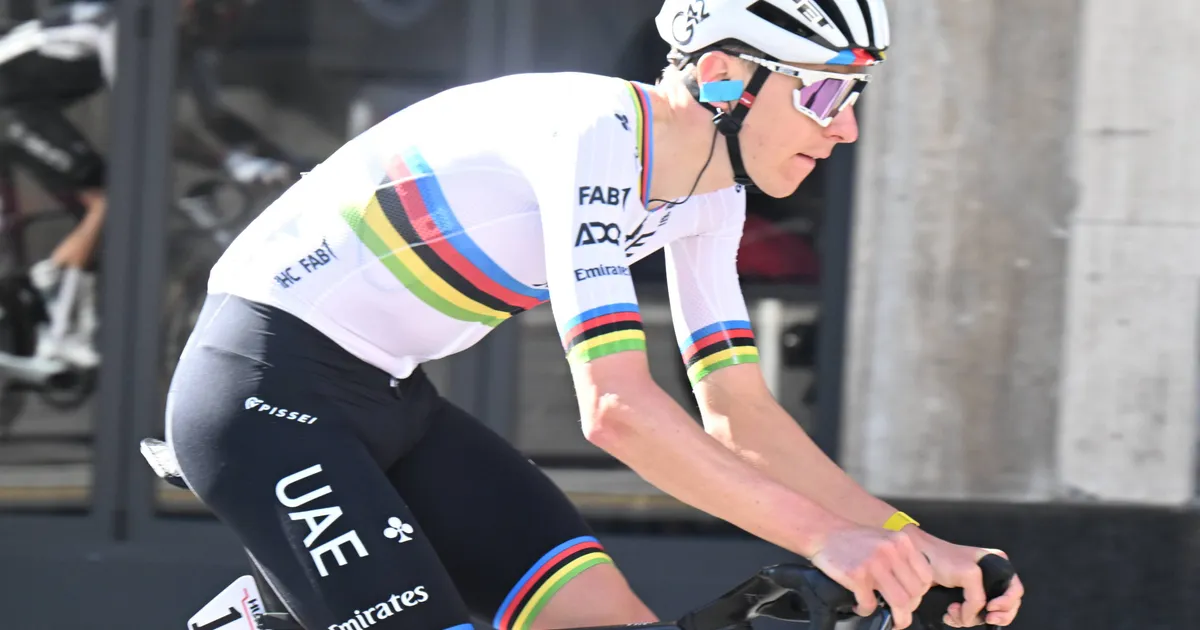A Roubaix win is “only a matter of time”
While the narrative around Roubaix often focuses on its inherent unpredictability – punctures, crashes, mechanicals, and luck on the cobbles – Murn points to Pogacar’s sheer physical strength and growing experience as key indicators that a victory is only a matter of time. “He’s already finished second at Roubaix – a race where brute strength decides the outcome – and he has plenty of it,” Murn explained. “That power translates well on the cobbles. Maybe it won’t happen next time, because you still need to ride it a few more times, but he’ll do it. The only real barrier is luck – one mechanical, and it’s all over.”
While Roubaix may appear to be the greater obstacle, Murn sees Sanremo as the more immediately achievable target. But he insists that success there will depend on strategy, not just legs. “I believe he’ll win Sanremo first,” Murn said. “There, UAE need to make the race hard on the earlier climbs – Melo, Cervo, and Berta – so the heavier riders arrive at Cipressa and Poggio already fatigued. They can’t allow the others to recover, not even on the flat. If the full UAE squad targets the final 80 km and makes it a selective race, I think it’s possible.”
That’s an astute observation from Murn, reflecting a deeper understanding of Sanremo’s unique rhythm – a race often decided in the final 10 minutes, but shaped by what came in the previous six hours. Pogacar’s upward trend in Sanremo (12th in 2020, 5th in 2022, 4th in 2023, and 3rd in both 2024 and 2025) suggests the breakthrough is imminent.
“You don’t tell Tadej what to do – you listen”
Unlike Flanders, where his climbing on the Oude Kwaremont and Paterberg outclassed rivals, or Lombardia where he has controlled the race with brutal consistency, Sanremo and Roubaix remain races where even the best-laid plans can unravel. Still, Murn sees Pogacar’s mindset as the decisive factor. “Whenever he doesn’t succeed at something, he becomes even more motivated. That’s what drives him. Tadej is just that kind of rider.”
Crucially, Murn emphasises that listening to Pogacar – not instructing him – is often the best coaching strategy. “He’s a very smart cyclist,” he says. “We talk through the course, but ultimately, he knows exactly where he can make the difference. The rest of the team adapts around him.”
That insight was borne out again this summer at the World Championships in Kigali, where Pogacar launched a premeditated attack on Mount Kigali, 104 km from the finish, and held off all chasers to defend his rainbow jersey. Murn credits Pogacar’s precision in choosing his moment and managing his effort. “He knows that once he gets a gap, he can hold it. Remco Evenepoel, for example, is a better time trialist and very strong on the flat, but on the climbs, he can’t follow Tadej. And Tadej knows that. He never rides over his limit. But the guy chasing him has to.”
Murn’s confidence in his star rider is born not just of admiration, but of years observing his tactical maturity evolve alongside his physiological brilliance. From managing long solo efforts to reading the psychology of his opponents, Pogacar has turned his once-explosive promise into a rounded, generational dominance.
Still only 27, he has time on his side – and history within reach. Only Van Looy, Merckx and De Vlaeminck have won all five Monuments. For now, the Slovenian sits on three – plus four Tour de France title, two World Championships, and a European crown and a Giro victory. But the hunger is far from satisfied. “He’s not done,” Murn insists. “Not even close.”

